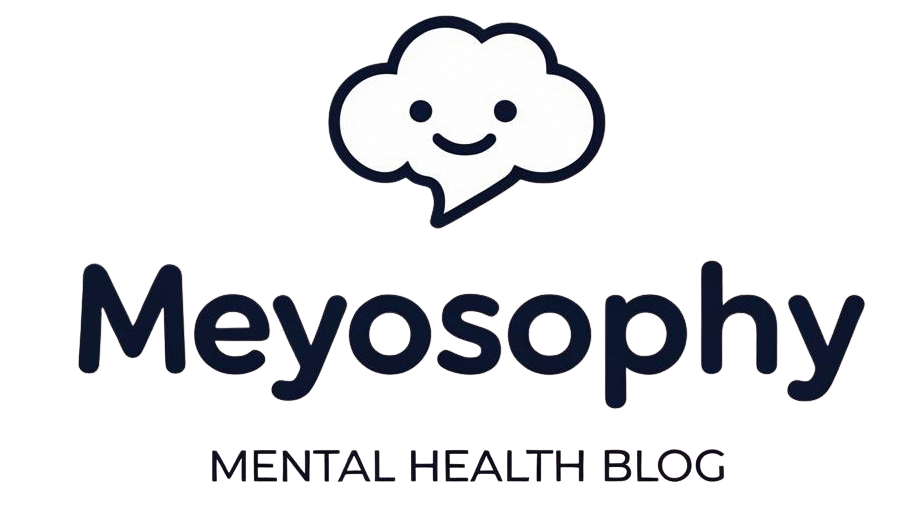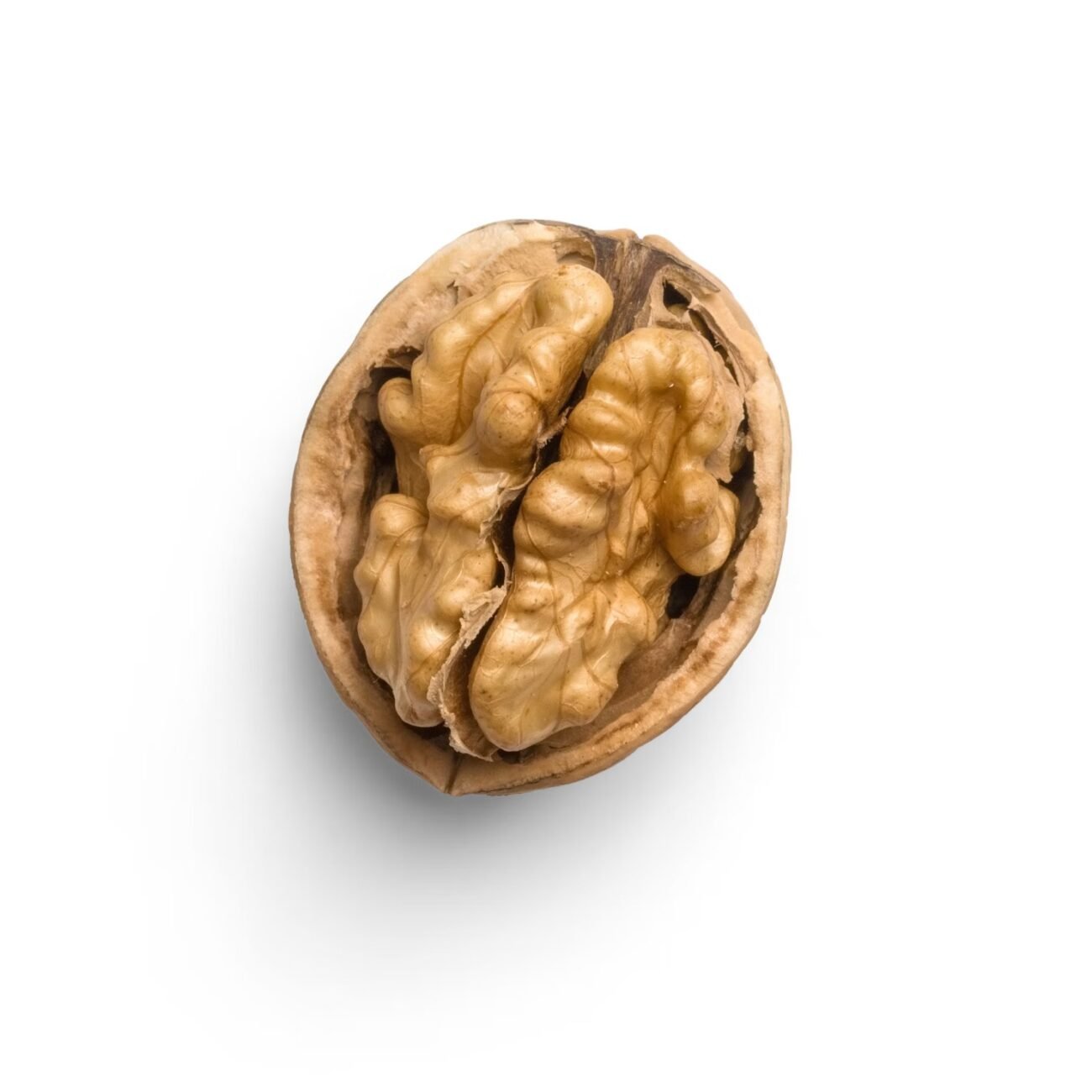If you’ve been feeling anxious or on edge lately, your gut might be partly to blame. And no, I’m not just talking about butterflies before a big moment, I’m talking about that deep, wired, overwhelmed feeling that sticks around.
Turns out, your gut and your brain are constantly communicating with each other. And what you eat? It’s a major part of that conversation.
So today, we’ll walk through the basics of gut health, how it links to anxiety, and (most importantly) what foods actually help calm your nerves.
What’s the Connection Between Gut Health and Anxiety?
Okay, quick science moment (but I promise, it’s the fun kind):
Your gut has its own nervous system, called the enteric nervous system. Some scientists even call it the “second brain.” It’s packed with over 100 million nerve cells and is in constant communication with your actual brain via something called the gut-brain axis.
This system is the reason why:
- Stress can upset your stomach
- Anxious thoughts make you feel nauseous
- And eating junk can leave you feeling low
Here’s the key thing:
Around 90% of your serotonin, that feel-good, calming chemical, is actually made in your gut[^1]. That means if your gut is inflamed or imbalanced, your brain literally can’t get the tools it needs to help you feel safe and calm.
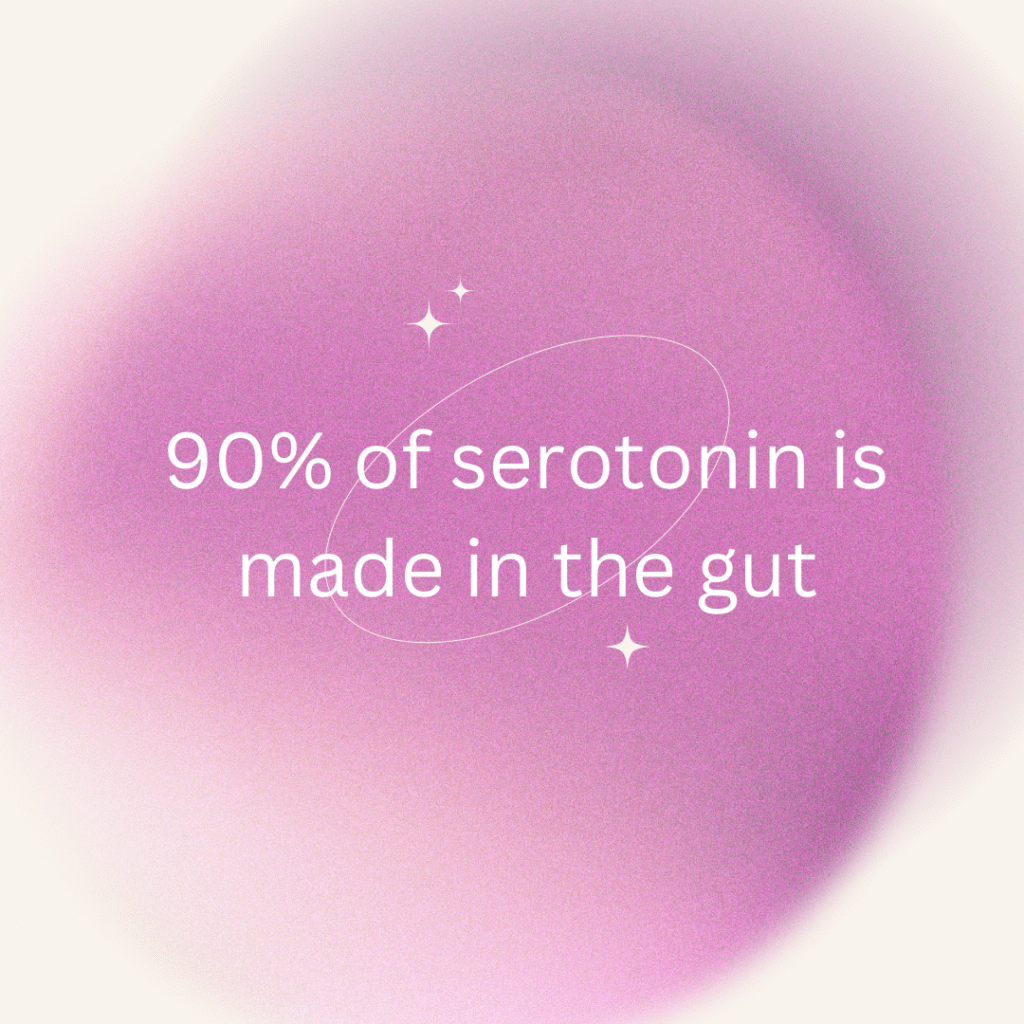
So… What Foods Calm Anxiety (and Support the Gut)?
Let’s get into the good stuff: actual foods you can start eating today that help calm your nervous system from the inside out.
1. Fermented Foods (aka Probiotic Powerhouses)
Think:
- Yogurt with live cultures
- Sauerkraut
- Kimchi
- Kefir
- Miso
- Tempeh
These are full of good bacteria, aka probiotics, that support a healthy microbiome. And a balanced gut microbiome = better mood, less inflammation, and less anxiety[^2].
⚠️ Go slow if you’re new to fermented foods. Start with a tablespoon a day to give your gut time to adjust.
2. Leafy Greens
Your gut LOVES fiber. Leafy greens like spinach, kale, Swiss chard, and arugula are rich in prebiotic fibers that feed the good bacteria in your belly. They’re also packed with magnesium, a calming mineral that’s often low in anxious people[^3].
Try this:
🥗 Make a daily smoothie with spinach, banana, oats, and almond milk
3. Fatty Fish (Omega-3 Heaven)
Salmon, mackerel, sardines; they’re all packed with omega-3 fatty acids, which have been shown to reduce symptoms of anxiety and depression[^4].
🐟 Omega-3s help reduce inflammation in both the brain and gut.
If you’re not into fish, you can also try algae-based omega-3 supplements, great for plant-based diets.
4. Berries (for Brain + Gut Protection)
Blueberries, strawberries, raspberries are all high in antioxidants and gut-friendly fiber.
They help fight off inflammation and oxidative stress, both of which are known to increase anxiety symptoms[^5].
Tip:
Throw frozen berries into oats, yogurt, or even savory grain bowls.
5. Pumpkin Seeds & Other Magnesium-Rich Snacks
Remember that magnesium we talked about? Pumpkin seeds, chia seeds, and almonds are all rich in it. Low magnesium levels have been linked to higher anxiety, so topping up can make a difference[^6].
Snack idea:
A mix of pumpkin seeds + dark chocolate chips + walnuts = delicious anti-anxiety trail mix.
6. Oats (Complex Carbs for Steady Calm)
Oats are a source of complex carbohydrates that help your body produce serotonin and stabilize blood sugar. Stable blood sugar = less panic, less irritability.
Pro tip:
Overnight oats with yogurt and berries = mood food you prep while half-asleep.
7. Herbal Teas
Not a “food” exactly, but teas like chamomile, peppermint, lemon balm, and lavender have gentle gut-soothing and anxiety-reducing effects. Plus, just the ritual of sipping something warm is calming in itself[^7].
My go-to:
Chamomile + a splash of honey before bed. It’s like a hug in a mug.
Foods to Be Mindful Of
This isn’t about perfection, but some foods tend to worsen anxiety and gut health. You don’t have to avoid them forever, but just know how they might affect you:
- Ultra-processed foods (think fast food, sugary snacks, packaged junk)
- Refined sugars (they cause spikes and crashes = mood rollercoaster)
- Excess caffeine (especially if you’re already wired)
- Alcohol (disrupts gut flora + nervous system)
Start by adding the good stuff instead of just cutting out the bad. Your gut and brain will notice the difference.
Putting It into Practice: A Day of Calm-Ahead Meals
- Breakfast: Overnight oats (rolled oats + yogurt + chia seeds + berries)
- Mid-morning snack: A small handful of almonds + a piece of fruit
- Lunch: Big salad with mixed leafy greens, shredded carrots, canned salmon, avocado, and a garlic-lemon vinaigrette
- Afternoon pick-me-up: A cup of kefir or kombucha, plus 1–2 squares of dark chocolate
- Dinner: Miso soup with tofu and scallions, plus a side of roasted sweet potatoes
- Before bed: Chamomile tea
Each of these choices ticks off at least two of our calming-food boxes; probiotics, fiber, healthy fats, or polyphenols, so you’re supporting your gut and your nerves all day long.
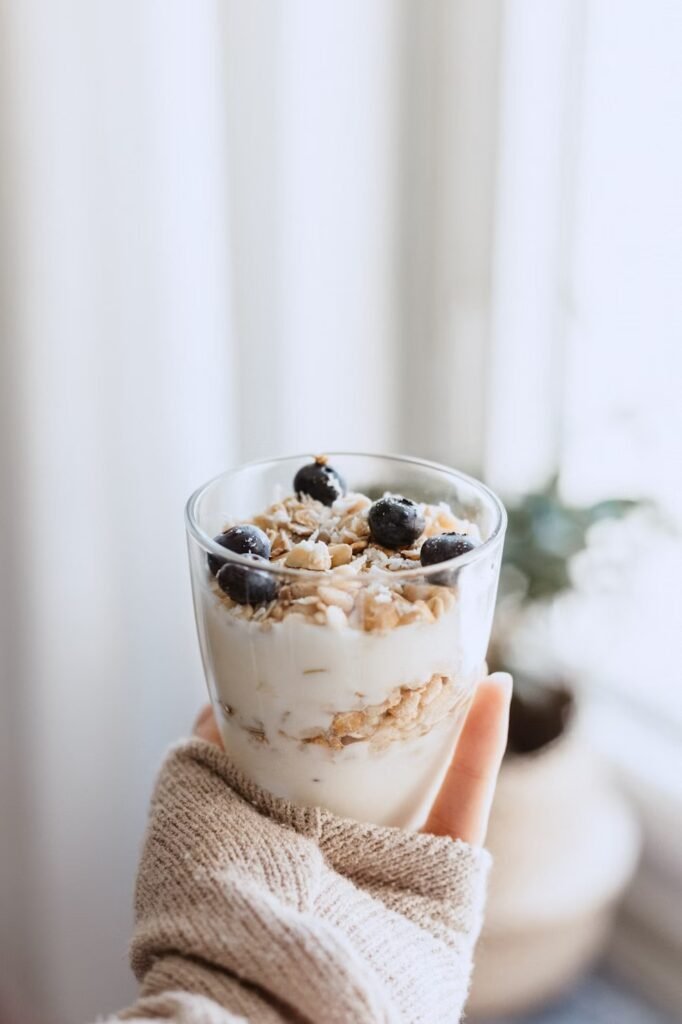
Extra Tips to Soothe the Gut-Brain Connection
🧘♀️ Try deep belly breathing. It helps stimulate the vagus nerve, which calms the gut and reduces anxiety.
🚶♀️ Gentle movement like walking, stretching, or dancing improves digestion and mood.
🛌 Prioritize sleep. The gut resets overnight. Good rest = better digestion = calmer mind.
📲 Limit doomscrolling. Stress from screens impacts your whole nervous system and yep, your gut too.
Final Thoughts
If you’ve been feeling anxious, scattered, or just “off” lately, don’t ignore your gut.
Start simple. Pick 1 or 2 calming foods, make them part of your routine, and notice how your body and mind start to feel more grounded.
It’s not a magic fix, but it is a foundational one. You deserve to feel calm and steady and your gut might just be the key to getting there 💛
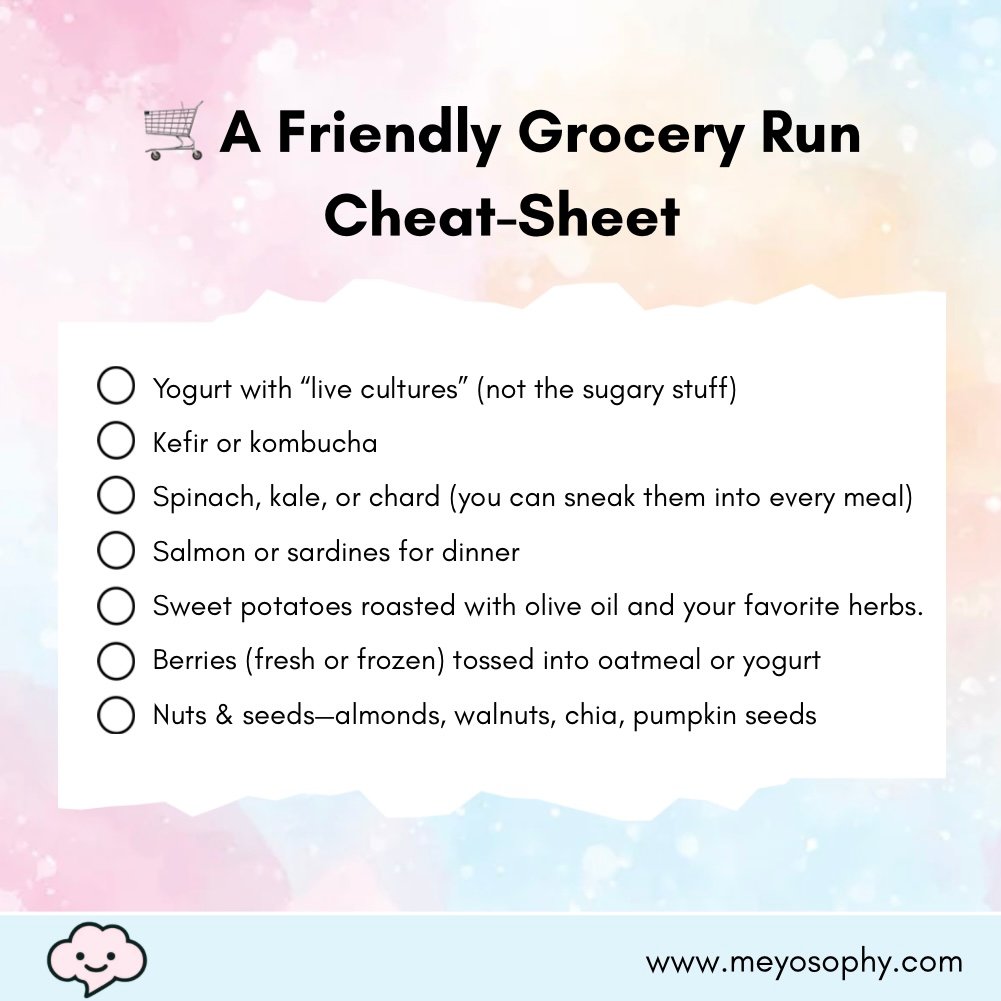
📚 Sources
[^1]: Carabotti M, Scirocco A, Maselli MA, Severi C. (2015). The gut-brain axis: interactions between enteric microbiota, central and enteric nervous systems. Ann Gastroenterol.
[^2]: Foster JA, Neufeld KA. (2013). Gut–brain axis: how the microbiome influences anxiety and depression. Trends in Neurosciences.
[^3]: Boyle NB, Lawton C, Dye L. (2017). The effects of magnesium supplementation on subjective anxiety and stress. Nutrients.
[^4]: Su KP et al. (2018). Omega-3 fatty acids in major depressive disorder: A preliminary double-blind, placebo-controlled trial. Molecular Psychiatry.
[^5]: Scholey A, Owen L. (2013). Effects of chocolate and theobromine on mood: a systematic review. Nutrition Reviews.
[^6]: Tarleton EK, Littenberg B. (2015). Magnesium intake and depression in adults. Nutrients.
[^7]: Amsterdam JD, Li Y, Soeller I, et al. (2009). A randomized, double-blind, placebo-controlled trial of oral Matricaria recutita (chamomile) extract therapy for generalized anxiety disorder. J Clin Psychopharmacol.
Disclaimer: I’m not a mental health professional, everything here is shared from research and personal experience. If you’re feeling overwhelmed or need support, please consider talking to a qualified professional. You’re not alone. If you’re in the U.S., you can call or text 988 anytime. For help in other countries, visit https://findahelpline.com.
